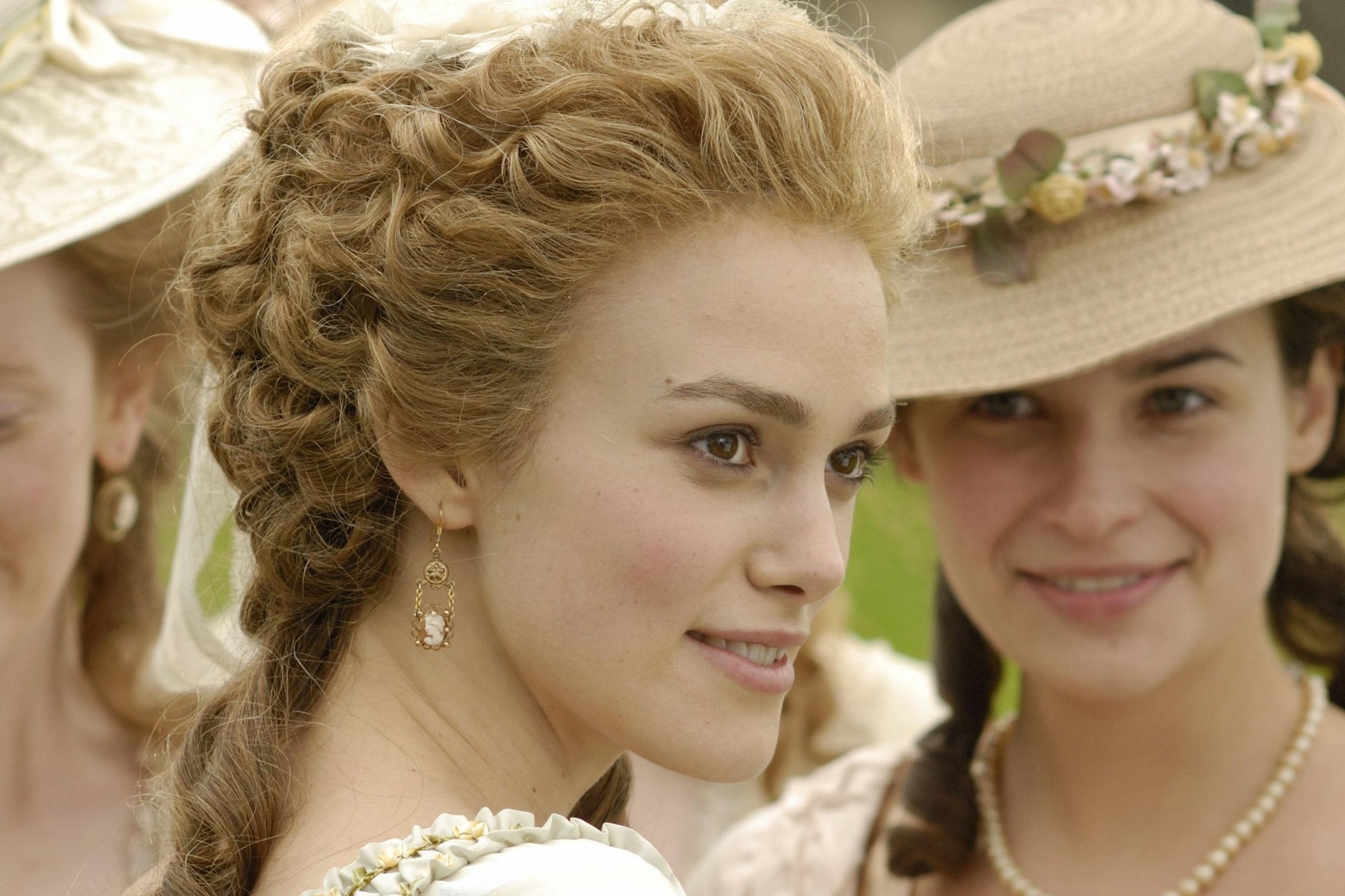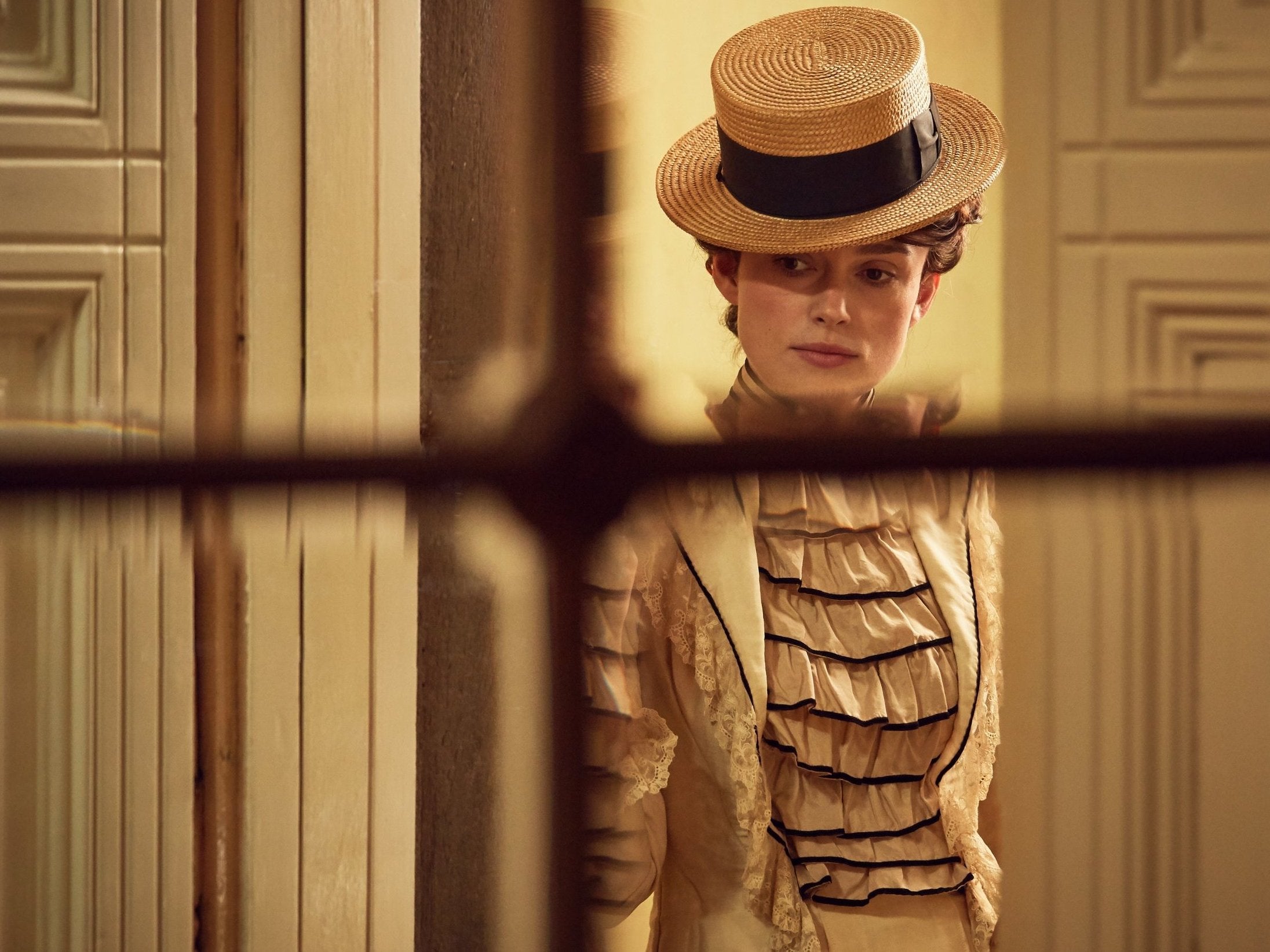Keira Knightley is obviously right: there's a sexist double standard in how we treat period dramas
The actor's had a front row seat to how the genre has been unfairly diminished and denigrated
Keira Knightley and the period drama are the dearest of companions. They have been since her international breakout in 2003’s Pirates of the Caribbean, as damsel-turned-pirate Elizabeth Swann. Next came her Oscar-nominated take on Elizabeth Bennet in Pride & Prejudice, then roles in Anna Karenina, The Duchess, The Imitation Game – the list goes on.
Her fondness for the genre has also made her an increasingly staunch defender of its merits. While attending this year’s Toronto International Film Festival to promote her latest foray, Colette, she remarked of the period drama: “There’s a negativity around them, because predominantly they’re female.”
Knightley has always had a front row seat to the denigration of the period drama: an entire genre routinely diminished, mocked either as blatant Oscar bait or air-headed fantasy. And it’s hardly a coincidence that it’s one of very few genres that routinely puts women at the centre of its stories.
Why else have Knightley’s career choices remained under siege like this, if not for the insidious hands of cultural double standards? Accused of an addiction to period drama, her motivations continue to be routinely interrogated by the press – so much so that she felt guilt over her preferences in the past.
“When I was younger, I felt like I really was doing something wrong for doing period films,” she said in a 2014 interview. “I think I’ve now got to where I can stop apologising for that bit, and go, ‘I love them, I’ve always loved them, I loved doing them.’”
Have we asked Arnold Schwarzenegger to explain his career in action films with quite such breathless urgency? Are we cornering Will Ferrell to beg him to try out a horror flick once in a while? To ridicule Knightley for her choices is to lambast the period drama as an inherently unworthy pursuit, while continuing to dismiss fiction aimed primarily at women as slighter, lesser fare.
This is the mindset that’s routinely haunted Jane Austen’s legacy. Despite being one of the greatest ever literary minds, she is often reduced to the writer of lovey-dovey romances, her acute sense of social satire cast aside. Or we’ll be told, in an attempt to reclaim the humour in her work, that she didn’t write love stories at all. According to the cultural gatekeepers – who are largely men – the femininity of her work must either be abandoned or relegated strictly to swooning. Those two things cannot possibly be allowed to co-exist.

Austen’s treatment may betray, in fact, why we separate “period drama” – which is considered synonymous with feminine frivolity – from the somehow more reputable “literary adaptation” or “historical drama”. There’s an underlying assumption that period dramas act purely as a form of escapism, incapable of any insight into the period they take place in.
When ITV’s Victoria aired in 2016, The Spectator’s James Delingpole expressed unfettered rage at the series’ inclusion of an imagined romantic incident, in which Prince Albert saved the Queen’s favourite spaniel, berating some imagined “MillsandBoonification of history”.

Watch Apple TV+ free for 7 day
New subscribers only. £8.99/mo. after free trial. Plan auto-renews until cancelled.
ADVERTISEMENT. If you sign up to this service we will earn commission. This revenue helps to fund journalism across The Independent.

Watch Apple TV+ free for 7 day
New subscribers only. £8.99/mo. after free trial. Plan auto-renews until cancelled.
ADVERTISEMENT. If you sign up to this service we will earn commission. This revenue helps to fund journalism across The Independent.
Is he unaware that one of the great macho-historical epics of the modern age, Ridley Scott’s Gladiator, credits the fictional Maximus Decimus Meridius with the death of the real Emperor Commodus, who died not in the gladiator ring, but in the bath, strangled by a wrestling partner?
It is assumed, too, that the period drama is pure pageantry, utterly incapable of artistry. Rarely considered is how often the genre’s boundaries have been expanded: from Andrea Arnold’s raw, minimalist adaptation of Wuthering Heights to Yorgos Lanthimos’ The Favourite, which fires up a feverish reimagining of the reign of Queen Anne.
And though the period drama is still plagued by an almost singular focus on white narratives, not nearly enough importance has been placed on Amma Asante’s Belle, which brought to life the story of Dido Elizabeth Belle, the mixed-race daughter of an 18th-century aristocrat. Boundary-breaking for historical film at large, it confronts how narrow our vision of historical narratives has been so far, and how many stories remain untold.

Knightley’s own roles also bear a richness that’s often overlooked. 2008’s The Duchess, for example, served a reminder that its subject, Georgiana Cavendish, Duchess of Devonshire, was much more than a renowned beauty and fashion icon: she was an ardent activist, at a time when it was unheard of for women to stand at the frontline of politics. Her latest, Colette, casts her as the great French novelist, known for her novella Gigi, less so as a political and sexual revolutionary.
“The strongest characters I’ve found have been in period roles,” Knightley said of her career. The great irony is that in being dismissed as feminine fluff, the period drama has somewhat avoided the controlling male gaze. Women are allowed complexity and agency. They can be the heroes – not the wives and girlfriends of the heroes.
Ignore the negativity, and the corset can actually be quite freeing.
Colette hits UK cinemas 25 January. It will screen at the London Film Festival on 11 October.